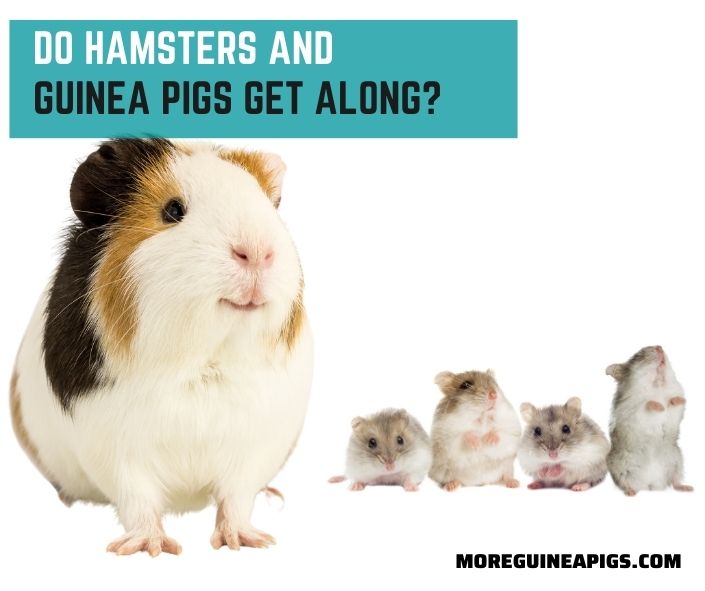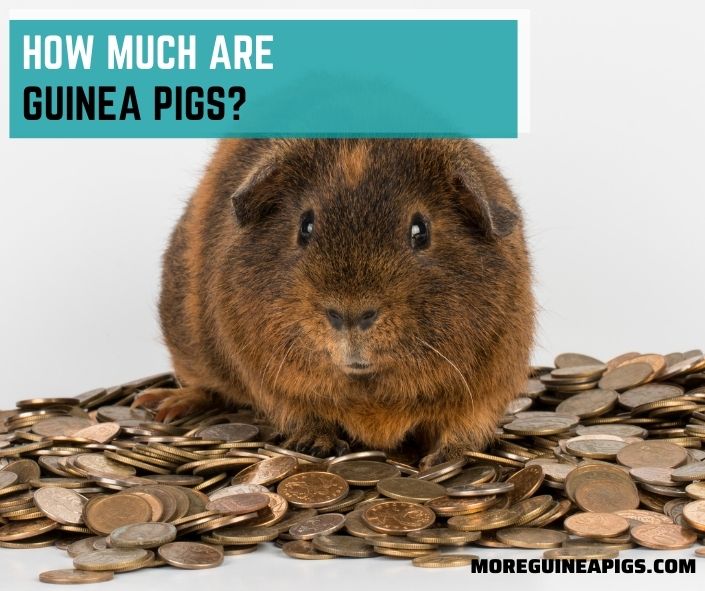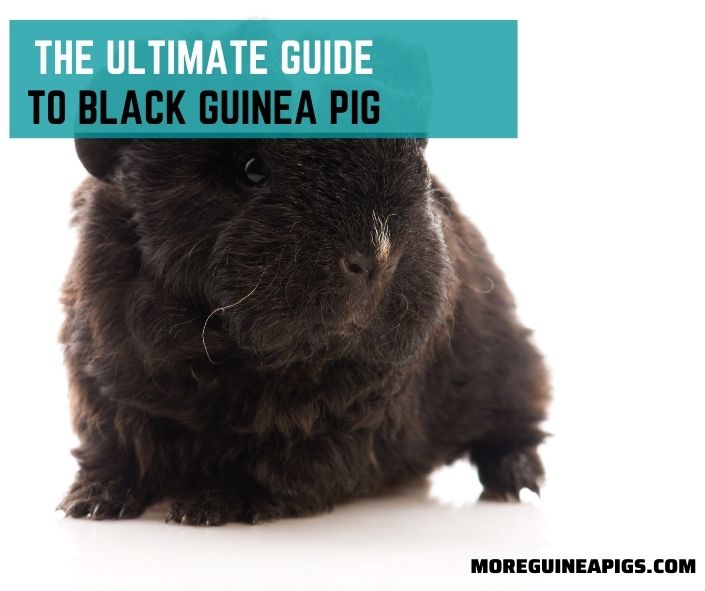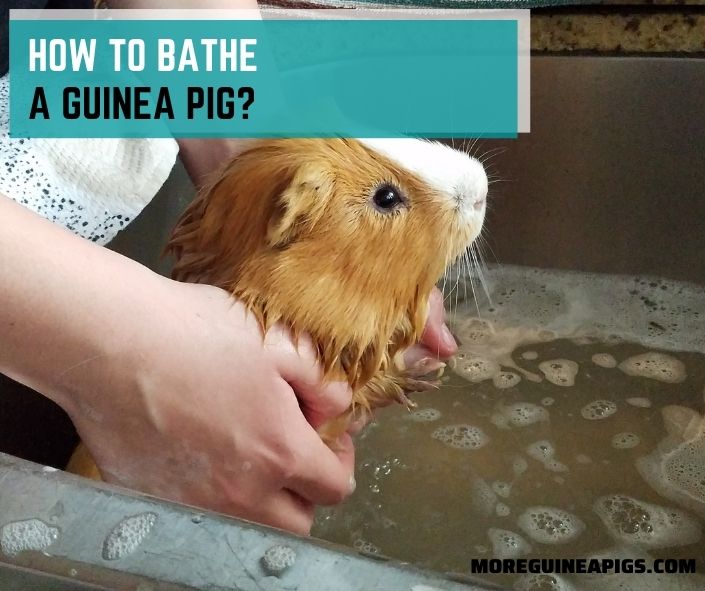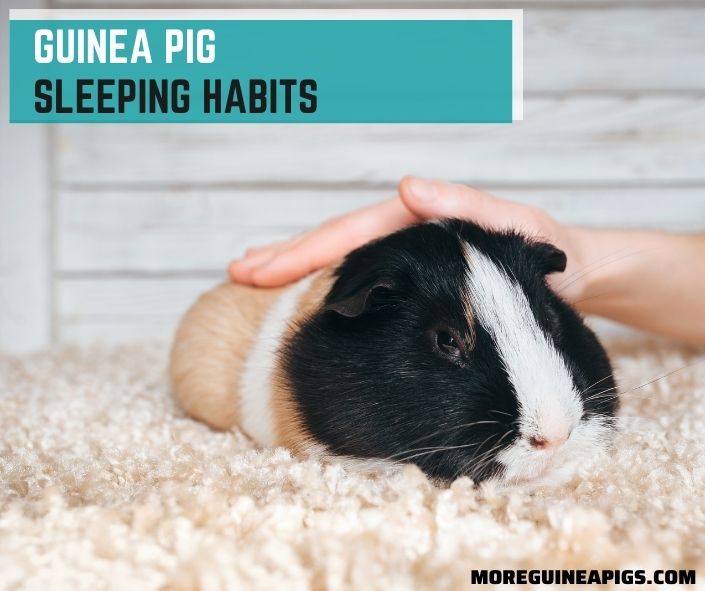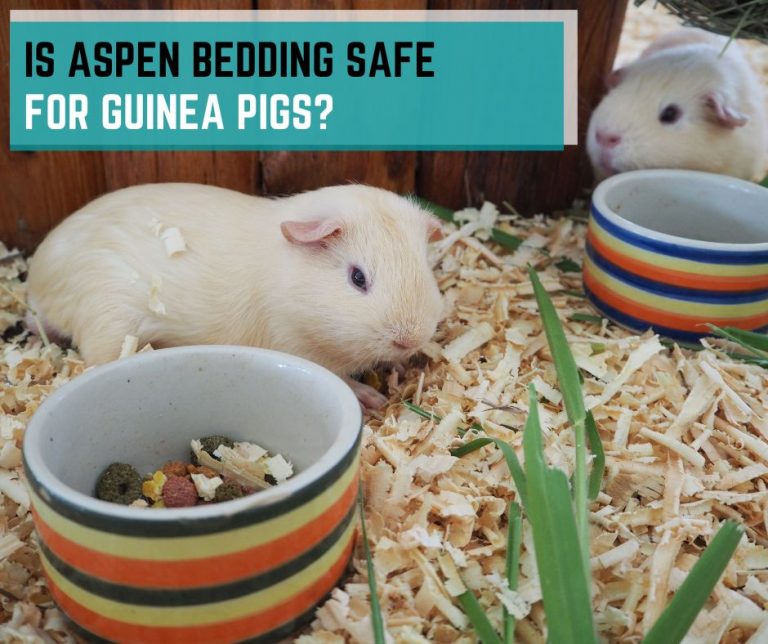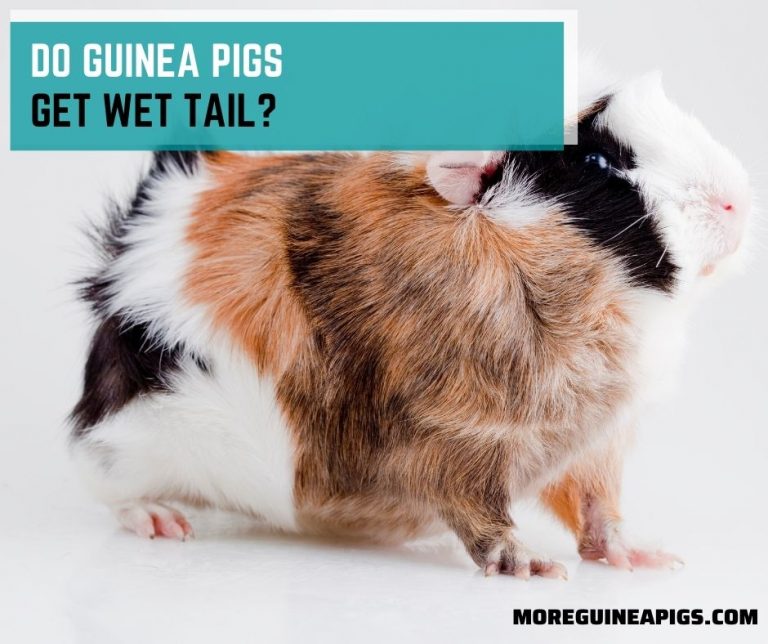Hamster And Guinea Pig: Which Is Better For a Pet?
Are you seeking a long term or a short-term companion? Well, guinea pigs and hamsters are worth noticing in the gnawer family. Hence, they are affectionate to humans; you will not feel bored and make your day fantastic.
Despite your love for pets, you are in limbo on which pets suit you, between hamster and guinea pig. That said, you need keen thoughts and put lots of things into consideration before making any move.
This is the right article to help you break the deadlock you are into since you will learn the complete comparison between the guinea pig and hamster and make a just decision in the end.
Difference Between Hamster and Guinea Pig
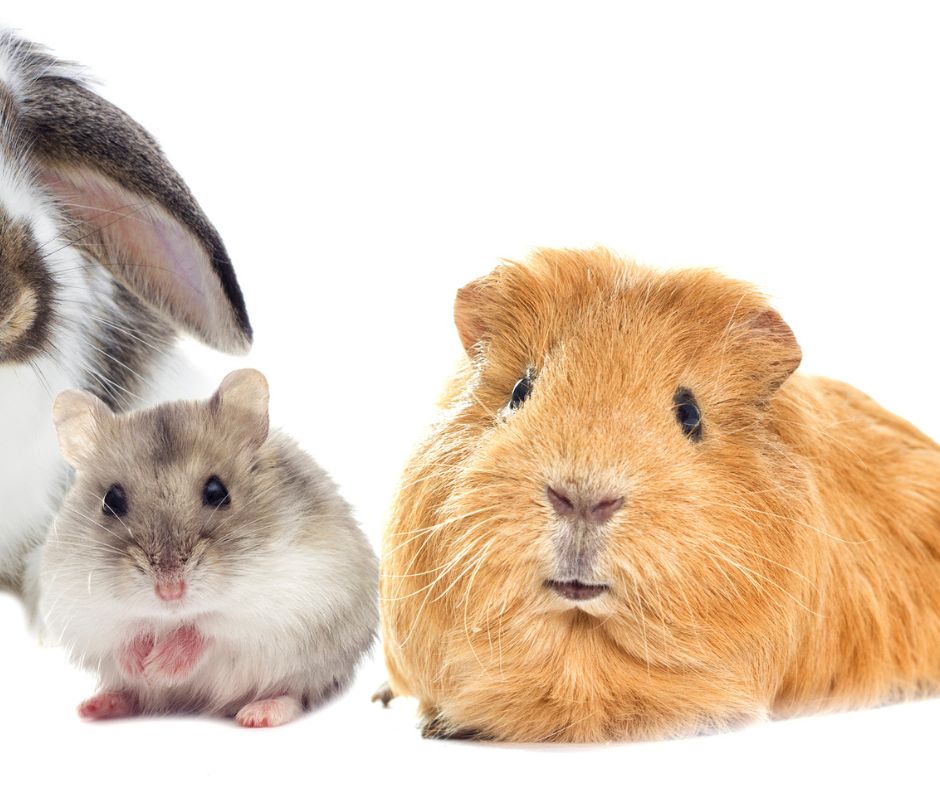
At a glance, hamsters and guinea pigs look similar from their physical appearances and from there, that is the end of much of their similarity.
Ultimately, hamsters and guinea pigs are not close species despite being in the rodents’ family. As a result, each has its own needs, personality, and different sizes.
For instance, a Guinea pig is large, around 8 to 12 inches in length, while a hamster is 5 to 6 inches. Hamsters are temperamental, unlike guinea pigs which are calm.
Below is a detailed comparison of hamster and guinea pig, which is vital when deciding which pet to appease your heart. For future reference, you may take down the notes.
Appearance and Lifespan
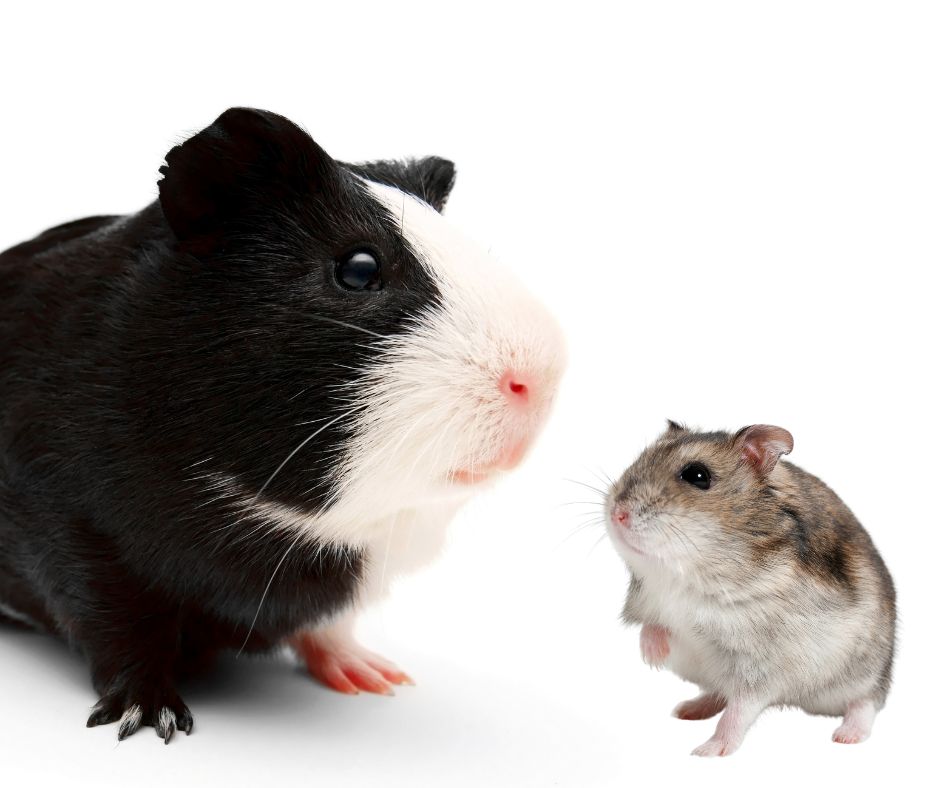
Despite the chubby appearance of guinea pig and hamster, each has a distinctive appearance. For example, the guinea pig looks relatively bigger than the hamster, with a small, short-legged stout body, without a tail and alert eyes on the large head.
While hamsters have stout bodies, they have tails shorter than body length. In addition, they have short, stocky legs, furry ears and wide feet.
Hamsters have an average life expectancy of 2 to 3 years shorter than a guinea pig, which can live for 5 to 7 years. For guinea pigs and hamsters to live up to maximum years, you should invest in their well-being.
Diet
Guinea pig is an herbivore rodent, and its diet comprises green leafy vegetables, herbs, fruits and pellets, and some treats. Guinea pigs cannot synthesize Vitamin C in their body; as a result, their diets are usually rich in Vitamin C.
In contrast, the hamster is an omnivore, and its diet is mainly hay, grains and seeds. It can make Vitamin C and other trace minerals in their body; hence no need to supplement.
Moreover, guinea pigs tend to coprophage, which means they can eat their feces (they’re usually soft) to get some vitamins. It’s also an instinctive behavior in hamsters but occurs occasionally.
Behavior
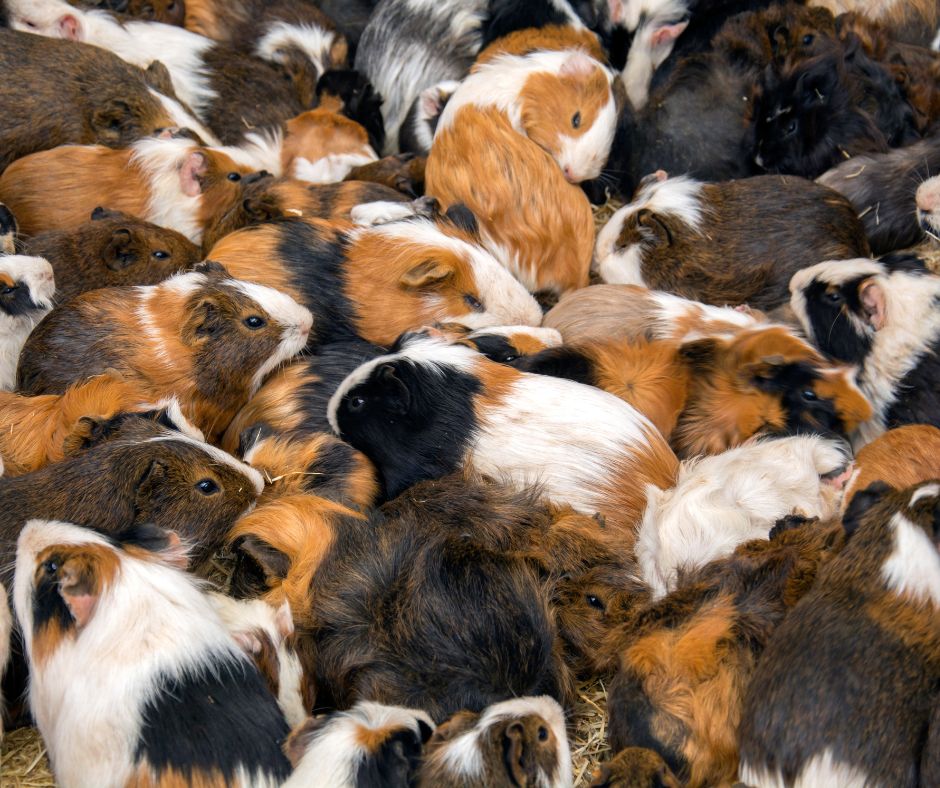
Guinea pigs are pretty social and like to live in groups; they always feel upset when left alone or without a companion. Contrastingly, a hamster is a territorial and solitary animal and cannot tolerate living with other pets.
Hamster is nocturnal, and it likes to spend lots of its energy during the night while sleeping during the day, unlike guinea pigs which keeps each other awake, be it daytime and sometimes nighttime.
Care Requirements
Both guinea pigs and hamsters require good care and maintenance in the cage, playtime, diets, and beddings, amongst other necessities. Still and all, a guinea pig requires more attention than a hamster.
For instance, guinea pigs will often require health checkups by your vet since they are prone to respiratory diseases and sensitive to an abrupt change of feeds. They also need lots of daily care.
Guinea pigs cage is cleaned many times per week, unlike in hamsters where you will need vet’s attention once in a while in case of an emergency, and the cage is cleaned once or twice per week.
Hamsters are joyful when they get maximum time to exercise on their wheel and live in a small enclosure, while guinea pigs like to play with toys.
More so, it’ll benefit from adequate time outside its cage where it can stretch its legs or body and explore. It also requires large-sized cages.
Suitability: Best for Whom?
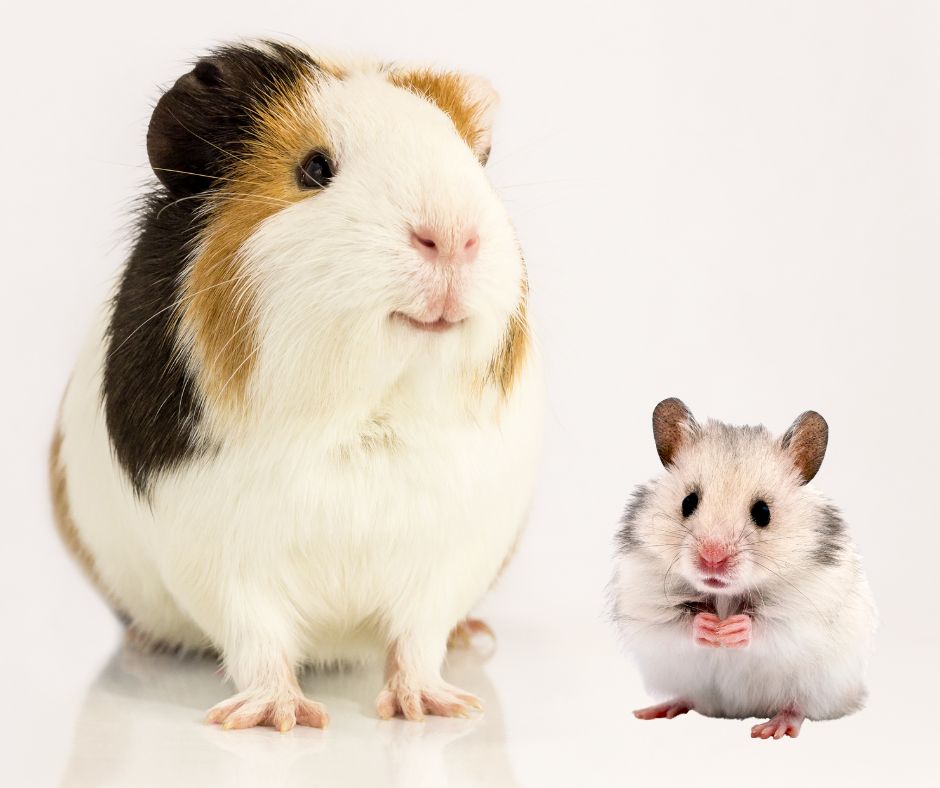
Are you eager and passionate to teach your older children responsibility and tender pet care? Then the hamster will suit you; it’s an excellent pet for them since they can domesticate it with kind handling and patience.
On the other hand, guinea pigs need extensive care and may not be suitable for kids. They are ideal for an adult or children above 11 years. Likewise, breeding these pigs requires a person with their breeding knowledge and experience.
Costs
Owning a guinea pig is quite expensive than owning a hamster. In terms of price, irrespective of breeds, guinea pig varies from $20 to $40 each, while hamster is between $10 to 20$ each.
Additionally, guinea pig cages are more expensive because they are more extensive than cages for a hamster. Guinea pigs are vulnerable and prone to be infected; as a result, you will spend more money on vets, unlike hamsters.
Unlike hamsters, you will spend more on providing or supplementing the guinea pig’s diet to ensure it gets enough vitamin C.
Can a Hamster and Guinea Pig Live Together?
No. They can’t. A hamster and guinea pig have different sets of furies, preferences and needs; as a result, housing them together is technically impossible. There are more risks than benefits.
This is because the hamster is a solitary animal, and it will not tolerate staying with a guinea pig as a roommate. They’re aggressive and competitive; as a result, should they feel threatened or frightened, it will bite their roommate.
However, if you wish to keep guinea pigs alongside other pets, it is advisable to seek guidance and counseling from a pet breeder or your vet on which pets can cohabit with guinea pigs.
In case it happens and to be sure of some success, introduce your guinea pig and other pets while they are still young so that they get familiar, even though you will do close monitoring.
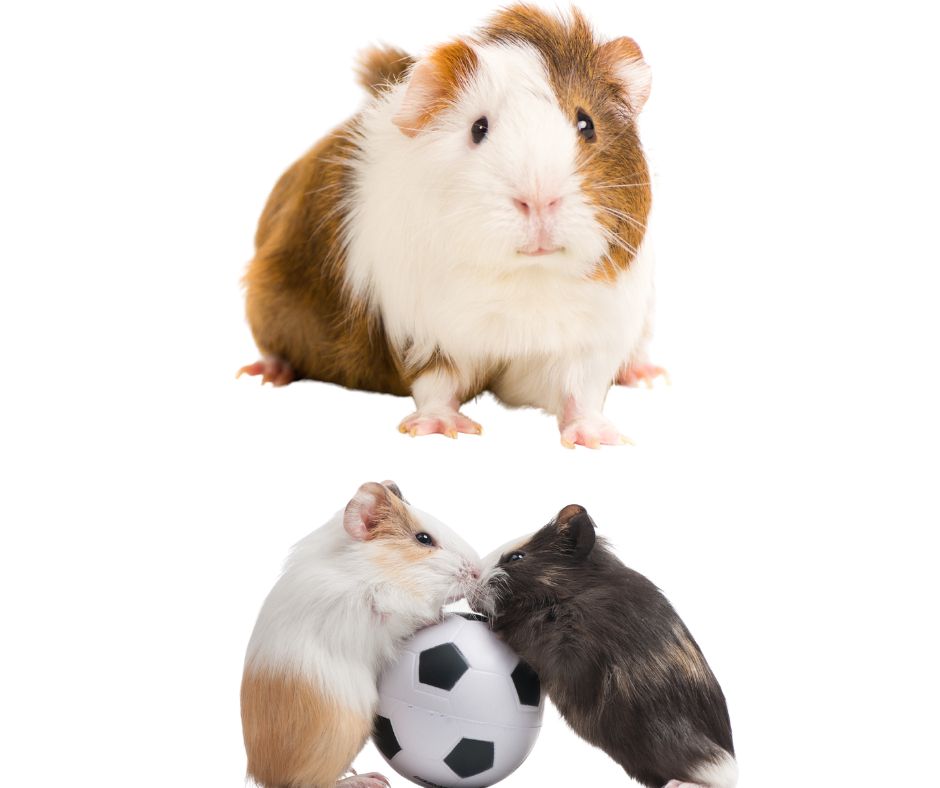
Which Is Better for a Pet Hamster or Guinea Pig?
Choosing the better pet between hamster and guinea pig will depend on your tastes, needs and preferences, and the individual traits of each pet. The following factors will be your guideline while making a decision.
Personal behavior: For instance, a hamster is far more temperamental than a guinea pig which is calm and super friendly. But when a hamster feels threatened or frightened, it’s more likely to nip or bite, likewise with a guinea pig.
Hamsters are small and more fragile than a guinea pig; as a result, they will require proper handling when carrying it around.
Space: if you have limited space, then a hamster will suit you since it needs much smaller space and less food and needs to be housed alone, unlike guinea pig which is social and likes to live in a group and large cage.
Proper care and handling: Hamsters are short, and a smooth coat makes it easy to take off, especially for children. With proper handling and training, hamsters are affectionate. You should be around whenever your child plays with the pets.
Suitability: Guinea pigs are better for adults and older children, generally people over ten or eleven years old. Children of very tender age should not hold either a hamster or guinea pig.
This is because they may hold them too tightly, slip from their hand, drop them on the floor or bruise them.
Ferplast Hamster Cage
Wrapping Up
To recapitulate, hamsters and a guinea pig can make excellent pets, and you are free to choose the one that suits you since you know their similarities and differences as well as the pros and cons of each.
Hamsters and guinea pigs have unique identities, making them outstanding for you to have an array of things to look at.
Nonetheless, you will be guided by the personal needs and demands and qualities/features you expect from your pets. I hope you will now have an easy time deciding whether to buy a hamster or a guinea pig. Best wishes!
